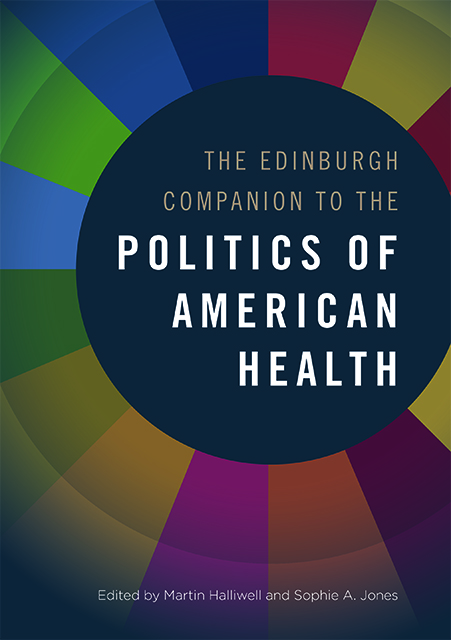Book contents
- Frontmatter
- List of Contents
- Notes on Contributors
- Introduction: The Political Landscapes of American Health, 1945–2020
- I Geography, Community and American Health
- II Critical Health Conditions: Debates and Histories
- III The Politics of Children's Health
- IV The Institutional Matrix of Health Care
- V The White House, Congress and Health Reform
- VI Justice, Ethics and American Health
- VII Public Health and Global Health
- General Bibliography
- Index
13 - Diagnosing Deficit, Promising Enhancement: ADHD and Stimulants on Screen
Published online by Cambridge University Press: 12 August 2023
- Frontmatter
- List of Contents
- Notes on Contributors
- Introduction: The Political Landscapes of American Health, 1945–2020
- I Geography, Community and American Health
- II Critical Health Conditions: Debates and Histories
- III The Politics of Children's Health
- IV The Institutional Matrix of Health Care
- V The White House, Congress and Health Reform
- VI Justice, Ethics and American Health
- VII Public Health and Global Health
- General Bibliography
- Index
Summary
In the photograph, a blond boy and woman grin together as they embrace. The boy clutches a document on which the grade B+ has been scrawled in red pen. A headline explains the scene: ‘Finally! Schoolwork that matches his intelligence. Family hours that last for hours. Friends that ask him to join the group. A trusted solution for ADHD.’ This 2004 advertisement for Shire's Adderall XR, an extended release version of the amphetamine-based ADHD treatment, was part of a new, twenty-first-century generation of direct-to-consumer advertisements for stimulant drugs. The advertisement seems to promote not only the medication, but also the condition it treats – in this case, attention deficit-hyperactivity disorder, or ADHD. It also promotes an image of the stereotypical ‘ADHD child’ – a white American schoolboy – and, moreover, the ideal life of such a schoolboy, with its balance of school, home and social harmony.
This Adderall XR advertisement is representative of a familiar cultural account of ADHD medication, in which psychostimulants are positioned as a route to normative child development, particularly for white American boys. Within the logic of advertising, the boy's B+ schoolwork might seem surprising – why not promise an A? But with this modest achievement, the advertisement registers a larger contradiction that has animated cultural representations of ADHD in the early twenty-first century: on the one hand, a fascination with stimulants as a form of cognitive enhancement; on the other, an investment in the idea that normative white masculinity develops ‘naturally’. Promising schoolwork that ‘matches’ rather than enhances intelligence, the Adderall advertisement toes a careful line between these tendencies. However, in film and tel-evision of this period, a more vividly paradoxical narrative of psychostimulants was emerging – one of a cognitively enhanced subject who could retrospectively claim that they did not need the drugs after all.
In this chapter, I explore representations of psychostimulants in film and television of the late twentieth and early twenty-first centuries. In the screen narratives I analyse – a 1999 episode of The Simpsons, the 2005 film Thumbsucker and the 2011 science fiction thriller Limitless – these medications promise a mode of white masculine success that is simultaneously pharmaceutically augmented and all-natural. These representations of stimulants on screen register (whether satirically or sincerely) a cultural tendency identified by the literary critic Mark Seltzer: ‘Nothing typifies the American sense of identity more than the love of nature (nature's nation) except perhaps the love of technology (made in America).’
- Type
- Chapter
- Information
- The Edinburgh Companion to the Politics of American Health , pp. 220 - 235Publisher: Edinburgh University PressPrint publication year: 2022



